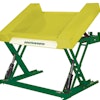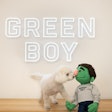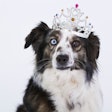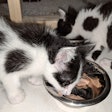US pet obesity rates continued to increase in 2012 with the number of overweight cats reaching an all-time high, according to the National Pet Obesity Awareness Day survey, conducted by the Association for Pet Obesity Prevention.
The survey found that 52.5 percent of dogs and 58.3 percent of cats are deemed overweight or obese by their veterinarian. That equals approximately 80 million US dogs and cats at increased risk for weight-related disorders such as diabetes, osteoarthritis, hypertension and many cancers.
"Pet obesity remains the leading health threat to our nation's pets," says Association for Pet Obesity Prevention founder and lead veterinarian for the survey, Dr. Ernie Ward. "We continue to see an escalation in the number of overweight cats and an explosion in the number of type 2 diabetes cases."
According to the survey, 45.8 percent of dog owners and 45.3 percent of cat owners incorrectly identified their overweight or obese pet's body condition as "normal weight" when asked to assess their pet's body condition by a veterinarian.
Dr. Ward calls the phenomenon of incorrectly evaluating an overweight pet as normal "the fat gap": "The disconnect between reality and what a pet parent thinks is obese makes having a conversation with their veterinarian more challenging. Many pet owners are shocked when their veterinarian informs them their pet needs to lose weight. They just don't see it," Dr. Ward says.
The survey also found that certain dog breeds are at a greater risk for being overweight, with 58.9 percent of Labrador Retrievers and 62.7 percent of Golden Retrievers surveyed identified as overweight or obese by their veterinarian.
According to Dr. Ward: "This is a war veterinarians, pet owners and parents must win. Obesity is the number one preventable medical condition seen in veterinary hospitals today...Our goal is to help pets and people live longer, healthier and pain-free lives by maintaining a healthy weight, proper nutrition and physical activity. The most important decision a pet owner makes each day is what they choose to feed. Choose wisely. Your pet's life depends on it."

















